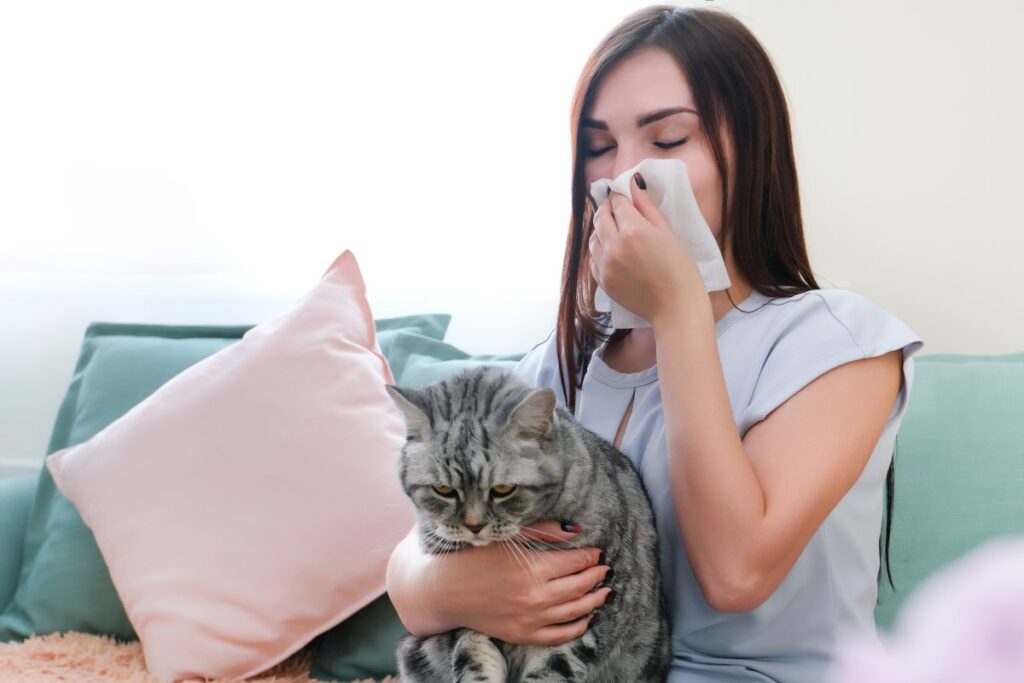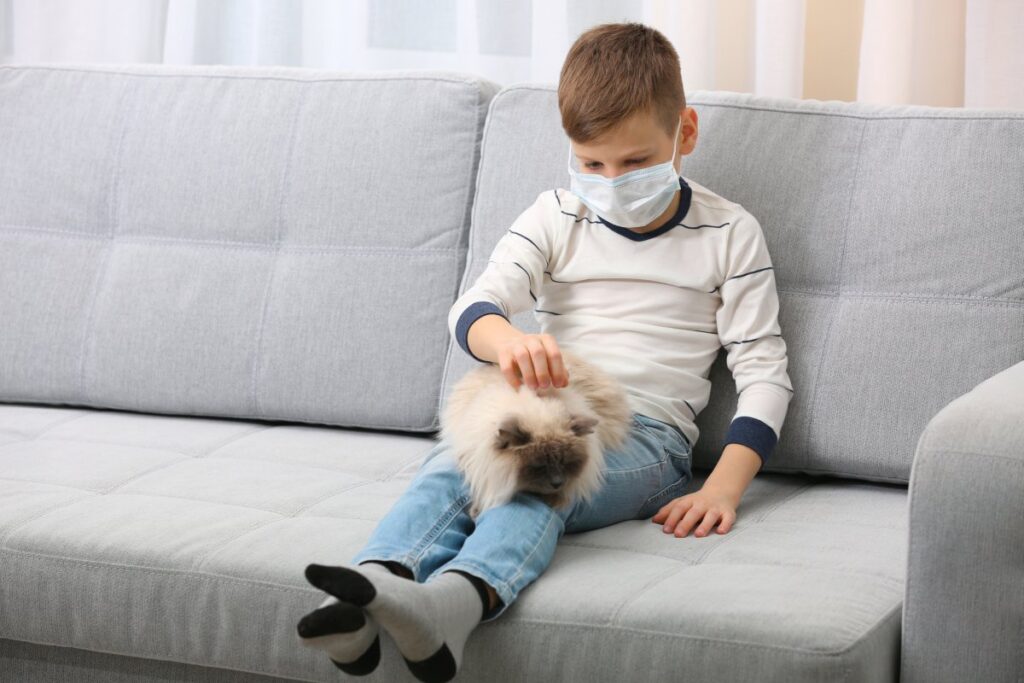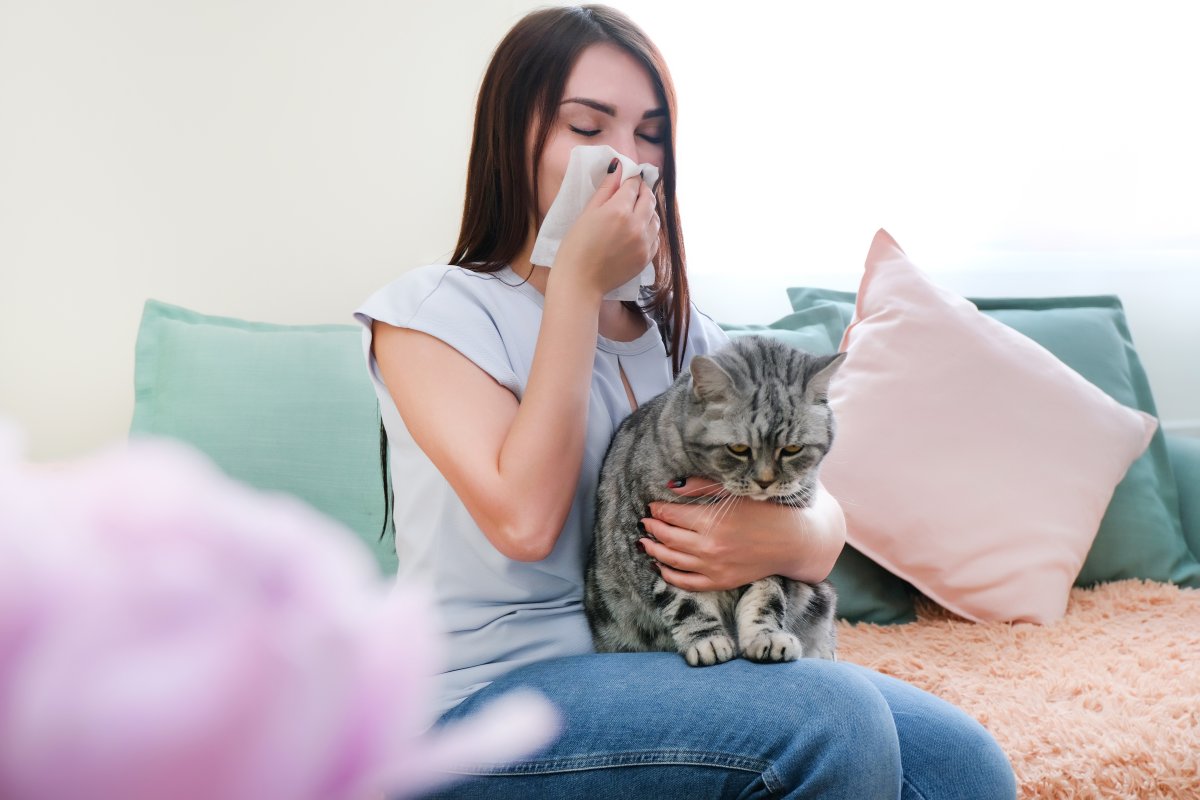It is pretty common among humans to be allergic to cats. Many people suffer excessive sneezing, watery eyes, itchy skin, and wheezing when a cat passes by. Due to these reasons, many cat lovers avoid owning a cat. However, those who own a cat give up their beloved feline friend to charities when their cat allergy symptoms worsen.
If you are allergic to cats but still own one, it will affect your ability to strengthen your relationship with your fur pet as you try to maintain a safe distance to prevent sneezing or itchy skin. However, being allergic to cats does not always mean that you can’t own a cat. There is confusion among people related to cause and symptoms and to reduce the effect of allergy, but once you clear out that confusion, there are lots of things you can try while keeping a cat.
If you don’t want to give up your feline companion, then read on to discover the tips on how to decrease cat allergy.
Cat Allergy Symptoms
It is difficult not to have allergy symptoms as they happen whenever you find a feline nearby or come across some cat hair enduring on furniture or couch. Your immune system is more likely to react to a cat’s saliva, urine, or dander.
If you experience the following symptoms, there is a chance you have caught a cat allergy.
- Coughing
- Sneezing
- Skin rash
- Wheezing
- Trouble breathing
- Nasal congestion
- Itchy, red, and watery eyes
- Runny or stuffed nose

Causes of Cat Allergy
Many people have allergies genetically, which means they are more likely to experience them if one of your family members is allergic.
Your immune system has antibodies such as bacteria and viruses to fight off that substance that might affect the body. If a person has allergies, then his immune system considers an allergen as something harmful and makes antibodies to fight it, resulting in the causes of allergy symptoms such as runny nose, itching, asthma, and skin rashes.
In cat allergies cases, allergens come from dead skin (dander), saliva, fur, and even urine. When you breathe them or come across in contact with these allergens, you will end up catching allergic reactions. Pet allergen particles are also carried in the air circulation, on clothes, settled in bedding or furniture, and stay behind in our surroundings, such as on dust particles.
Tips to Decrease Cat Allergies
Don’t Let Your Cat Sleep on the Bed
We understand you like to sleep with a soft and fluffy coated cat, but you can have allergy relief by avoiding this. Try this, and if you somehow control the allergy symptoms, you can invite your cat back, but it is necessary to give yourself a break until you fully recover from the symptoms.
Keep Them Away From the Bedroom
Your bedroom is the only place where you spend most of your time in your house. Therefore, keep your bedroom closed and keep your cat allergen down in the room. Your bedroom should be reserved from allergens. So make your cat sleep anywhere during the day except your personal space.
Make Use of Air Filter
Since it is difficult to get rid of cat allergens, it is important to use an air purifier to clean home air, such as HEPA (high-efficiency particulate air). The air purifier also requires filter replacement when pushed to shove in your allergy relief; a good HEPA filter will work for you.

Wash Your Bedding in 140-Degree Hot Water
Wash all your bedding at least twice a month in 140-degree hot water. This will eliminate both cat allergens and dust mites.
Use Vapor Steam Cleaner
According to research, vapor steam cleaner are highly useful in killing off the cat dander embedded in upholstery and carpets. Steam cleaners provide you with a chemical and allergy-free environment by killing and cleaning mold spores, bacteria, and cat allergens.
Wash Your Hands Immediately After Touching a Cat
You love to hold your cat, but if you have a cat allergy, you need to take care of it. After holding or touching your cat, wash your hand immediately and avoid rubbing your eyes. Rubbing eyes can lead to itching in the eyes for hours, and use a strong anti-bacterial soap to get rid of the problem.
Use Vacuum Cleaner to Avoid Risk of Cat Allergen
Use a high-grade vacuum cleaner twice a week to vacuum up cat allergens. Vacuum your floor, furniture, carpet, and everywhere. Cat particles are tiny and can’t be seen with your eyes; therefore, thoroughly do the job.
Keep Your Cat Clean
It is important to keep your cat clean to avoid cat allergen. Wash your cats frequently; if your cat has long hair, then brush them as well; keep their nails managed to prevent any cause of allergy. In addition, you can also use a microfiber cloth to rub down the cat’s coat to clean visible dander.

Confine Your Cat to One Area
This tip is the most difficult for many pet owners who have allergies because cats do not ask for invitations, and they roam everywhere, wherever they want. But it is essential to confine your feline baby to one area of the house as it will control the allergen to some level.
You might not have to give your cat to charity if you do a good job with the above tips, as these tips can help you significantly decrease cat allergies. You need to make consistent efforts when you have an allergy, and you are a cat owner as well.
Final Thoughts
Even if the allergen is your beloved pet, living with severe allergies is not a joke. Avoiding exposure to irritating allergens is the most proactive, most accessible measure you can take. If you’re thinking of adopting a cat, get yourself tested first.
When it comes to deciding whether or not you’re a good fit for their forever home, it’s best to be cautious than sorry. And as you add animals or children to your family, you owe it to them and to yourself to protect yourself and the health of your loved ones.







